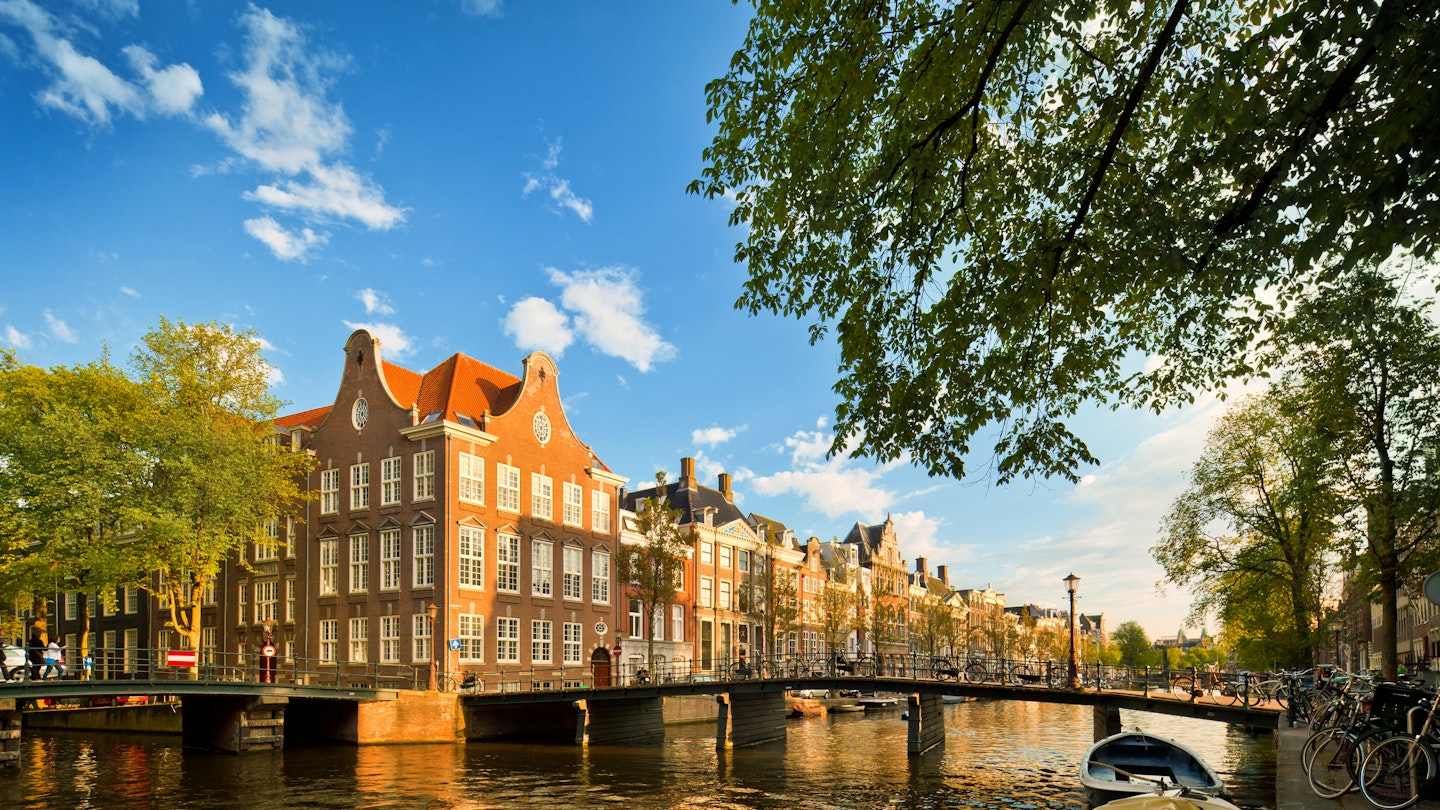Essential Tips for First-Time Visitors to Amsterdam
From cannabis-clouded coffee shops to lovely parks and cycling lanes aplenty, Amsterdam has a delightful, vibrant vibe that’s entirely its own. While it certainly makes for amazing travel escapades, there are some useful things to understand about this city and the local culture.
So, what do you need to know before visiting Amsterdam for the first time? Here are our top tips for newcomers.
1. Amsterdam is Not a 24/7 City
Establishments in Amsterdam keep regular hours. Shops generally open from about 10 AM to 6 PM, and supermarkets may stay open until 8 PM. Many shops do not open on Sundays, particularly outside busy tourist areas. Coffeeshops tend to open in the morning and close around midnight, while bars and clubs stay open until 3 or 4 AM.
2. Pre-Purchase Tickets Where Possible
At museums and galleries, it’s wise to prepare for long queues, especially during the high season from June to August. Ticketed time slots are often available at popular sights and should be booked at least six weeks in advance to ensure availability.
3. Plan Your Accommodation and Dining Ahead
It is advisable to secure lodging at least four months prior to your trip, particularly during peak tourist season. Also, reservations at must-visit restaurants should be made at least two weeks in advance to avoid disappointment.
4. Budget for a Higher Tourist Tax
In 2024, Amsterdam’s tourist tax has risen from 7% to 12.5%, making it one of the most expensive in Europe. This tax is charged on your accommodation cost and is payable upon arrival, so plan ahead and factor this into your budget.

5. Lock Your Bike Twice
Cycling is one of the most popular ways to get around Amsterdam. Most rental bikes come with two locks, and it is best practice to use both. Use one lock for the front wheel (attached to the bike frame) and the other for the back, securing it to a post or bike rack.
6. Pack Layers of Clothing
Practical clothing is essential in Amsterdam. The weather can be unpredictable, so mixing layers is advisable. A light trench coat or windbreaker is necessary for all seasons besides winter when warmer gear is required.
7. Use an OV-chipkaart for Convenient Travel
The OV-chipkaart is highly recommended for public transport, as it is more convenient than single tickets. It can be easily reloaded at machines or online and is available for purchase from ticketing machines and supermarkets.
8. Carry a Mix of Cash and Cards
In Amsterdam, there is a trend of cafes and restaurants moving towards cashless transactions. However, some older establishments might only accept cash, so it is best to carry both cash and cards for flexibility.

9. Be Respectful on the Streets
Local residents appreciate discretion, especially regarding noise levels and behavior in public spaces. Smoking marijuana and consuming alcohol in public areas can be considered poor etiquette. Additionally, photography of sex workers in the Red Light District is strictly prohibited.
10. Haggling at Flea Markets Is Acceptable
When shopping at Amsterdam’s famous flea markets, keep in mind that the first price offered by sellers is usually negotiable. This is particularly true for secondhand items—always approach haggling respectfully.
11. Understand Dutch Directness
The Dutch are known for their straightforwardness. If a local gives you a blunt opinion, it is often from a place of honesty rather than rudeness. However, sensitive topics, such as personal income, are generally avoided in conversation.
12. Tipping Guidelines
Tipping is not mandatory in Amsterdam, as hospitality workers typically earn fair wages. However, if you receive exceptional service, leaving a tip (around 10%) is appreciated across bars, cafes, and restaurants.
13. Show Your Support by Wearing Orange
At sporting events, wearing orange is a way to show support for the Dutch team. Embrace the spirit by donning extravagant outfits and accessories to blend in with the festivities.

14. Transporting Tulip Bulbs
If you purchase tulip bulbs at the Bloemenmarkt, ensure you obtain an official certificate for customs if you plan to ship them back to countries like the United States. This certificate must be dated within six weeks of your travel.
15. Bringing Cheese Back Home
Most varieties of Dutch cheese can pass through customs; however, unpasteurized and raw cheeses might be restricted. It is advisable to have cheese vacuum-sealed for safety and hygiene during travel.

16. Mind the Cyclists and Cycling Lanes
Cycling is a serious mode of transport in Amsterdam. Always be cautious and avoid walking in dedicated cycling lanes to ensure safety for both cyclists and pedestrians.
17. Renting a Bike Instead of a Car
Driving in Amsterdam can be challenging, especially in the city center. Renting a bike is a much more convenient option. Helmets are not legally required, but they are strongly recommended and can be rented cheaply.

18. Be Cautious Around Canals
Many canals lack protective barriers, so it is essential to be vigilant to prevent accidents.
19. Stay Aware of Pickpockets
In Amsterdam’s bustling downtown areas, pickpocketing can be an issue, particularly among tourists. Remain vigilant, and avoid carrying all your valuables in one place.
20. Medical Care in Amsterdam
Amsterdam offers numerous English-speaking medical services targeted at travelers. For urgent medical help, dial 112 for emergencies or contact local medical services directly.
This article was first published on December 1, 2021, and updated on March 16, 2024.




